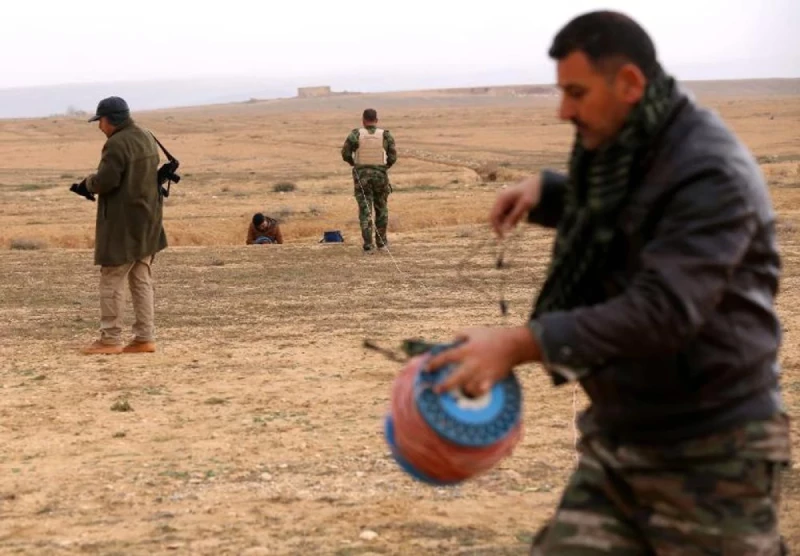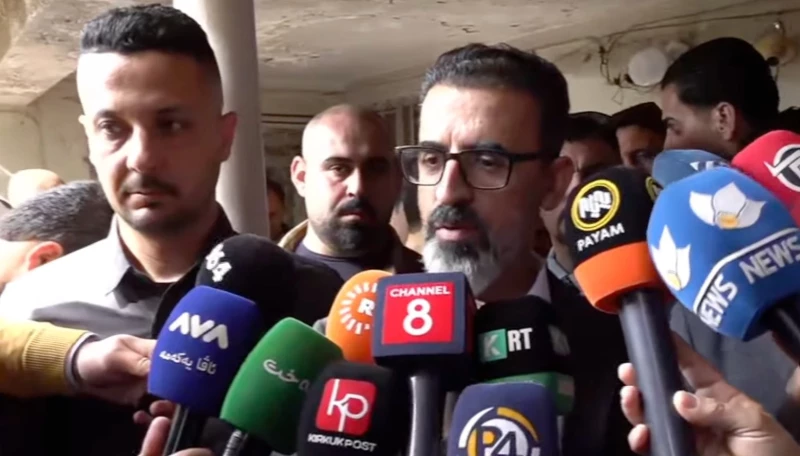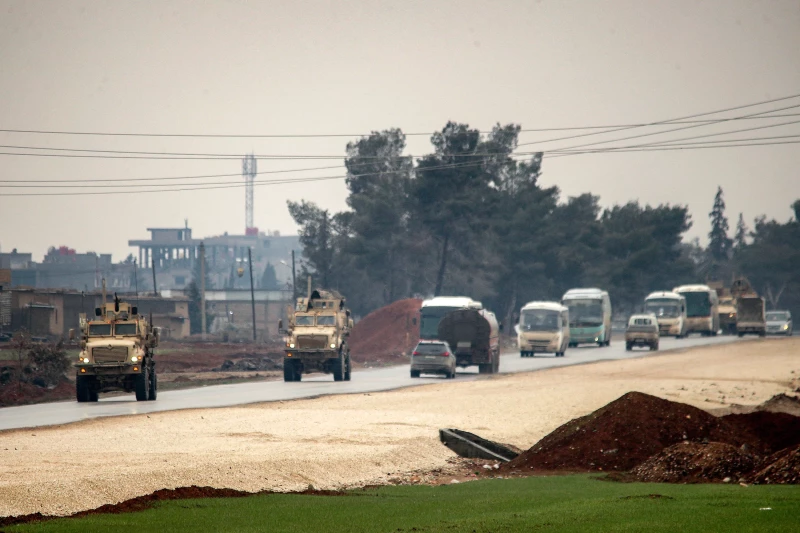Controversy surrounds Mohsen Al-Mandalawi's continuation as acting Speaker of Parliament, fueled by conflicting statements and ongoing disputes.
Despite the Coordination Framework's reassurances that they have no plans to keep Al-Mandalawi in the position, a number of Sunni politicians suspect otherwise, believing that elements within the Framework are maneuvering to secure his seat.
Al-Mandalawi, who has indirect ties to the Coordination Framework, has garnered considerable backing from several major blocs within the alliance. His ascent began this parliamentary session when he was appointed First Deputy Speaker, and subsequently assumed the role of acting Speaker after the Federal Supreme Court removed Mohammed Al-Halbousi from the post.
Under Iraq's political quota system, established in 2005, the presidency is designated Kurdish, the prime ministership Shia, and the parliamentary speakership Sunni. The allocation has thus far remained a consistent feature of Iraq’s political landscape.
It began with Hajim Al-Hassani, the first Sunni Speaker of Parliament in May 2005, setting the precedent for distributing the top three political positions among the main ethno-sectarian groups.
Nihal Al-Shammari, member of the Sunni Azm Alliance, believes that factions within the Coordination Framework are attempting to retain Mohsen Al-Mandalawi as Speaker until the end of the current parliamentary term. "This goes against all political norms and agreements," she said.
Al-Shammari accuses powerful factions within the Coordination Framework of trying to monopolize the Speaker's position. She noted that internal disputes within the Framework over their candidate are causing delays in electing a new Speaker. "This is not a Sunni-Sunni conflict," she clarified.
Al-Shammari highlighted that Sunni political forces have fulfilled their responsibilities by nominating Salem Al-Issawi and Mahmoud Al-Mashhadani. While MPs should choose between these candidates, disagreements within the Framework are stalling the election, deliberately keeping Mohsen Al-Mandalawi in office until the parliamentary term ends.
Parliamentary bylaws stipulate that if the Speaker's seat becomes vacant, a new Speaker must be elected by an absolute majority at the next session, adhering to the political balance among blocs.
In November 2023, the Federal Supreme Court revoked Speaker Mohammed Al-Halbousi's membership after MP Laith Al-Dulaimi filed a lawsuit accusing him of falsifying his resignation. The court's decision led to the expulsion of both Al-Halbousi and Al-Dulaimi from parliament.
To elect a new Speaker, more than half of the parliamentary seats—165 out of 329—must be present to form a quorum. Currently, the Sunni factions lack the numbers to meet this requirement.
Refutation
The Coordination Framework, represented by Thaer Al-Jubouri, has denied any intention to keep Mohsen Al-Mandalawi as Speaker of the House until the end of the parliamentary term.
Al-Jubouri says that the seat of Speaker is a Sunni entitlement and should be resolved promptly. He emphasized that this stance reflects the view of the Framework, which is working to unify Sunni political factions to resolve their disputes and hasten the election of a new Speaker.
Despite denying any intention to hold onto the position, Al-Jubouri pointed out that the ongoing Sunni infighting has inadvertently allowed Al-Mandalawi to legally remain as Speaker, and therefore the onus falls on the warring Sunni factions, which have failed to resolve the crisis.
Parliament has repeatedly failed to elect a successor to Mohammed Al-Halbousi. Four attempts have been thwarted by the lack of consensus. The Sunni blocs—Progress, Sovereignty, and Determination—remain steadfast in the backing their respective candidates: Shalaan Al-Karim of Taqaddum (Progress), Salem Al-Issawi of Siyada (Sovereignty), and Mahmoud Al-Mashhadani of Azm (Determination). Meanwhile, the Shia led Coordination Framework is pushing either for new nominees or for Mohsen Al-Mandalawi, the First Deputy Speaker, to continue in the acting role.
The Sunni political landscape in Iraq is embroiled in fierce competition over Al-Halbousi's succession following his ouster by court ruling. Al-Halbousi's party, Taqaddum, is determined to keep the speakership, arguing it holds the majority of the Sunni seats in parliament (43 seats). However, rival factions Siyada, Azm, and Hasm (National Hasm Alliance) contend that the speakership should go to the Sunni bloc as a whole, rather than being monopolized by a single party.
Intentional obstruction
Independent MP Kazem Al-Fayyadh highlights the deep-seated turmoil over the election of a new Speaker of Parliament, noting that the discord extends beyond Sunni factions and involves many political groups. According to Al-Fayyadh, some of these disagreements are intentional, aimed at stalling the resolution.
He stresses that the Iraqi Parliament cannot afford to be paralyzed by the absence of its Speaker. The First Deputy's role in managing parliamentary affairs is both constitutional and legal, and he is fulfilling his responsibilities effectively, according to Al-Fayyadh, who remains neutral in the battle for the speakership. He has consistently advocated for a swift election of a new Speaker in his discussions with MPs and political leaders.
The independent MP has criticized certain political parties for deliberately perpetuating conflicts for their own political and personal gains. "We will prioritize electing a new Speaker for the Iraqi Parliament at the start of the new legislative term," he said.
Currently, the Coordination Framework, which is the largest coalition in the House of Representatives with around 140 of the 329 seats, wields significant influence in selecting the Speaker. The position has been vacant for six months and is temporarily filled by Mohsen Al-Mandalawi, a deputy from the Coordination Framework, serving in an acting capacity.
Al-Halbousi and al-Mandalawi
Analyst Mohammed Ali Al-Hakim suggests that both Shia and Sunni parties have a vested interest in keeping Mohsen Al-Mandalawi as the acting Speaker of Parliament until the current term ends. "It's a well-known fact, and the involved parties are not keeping it a secret," he stated.
Al-Hakim further explained that al-Halbousi backs this arrangement to avoid the emergence of a new Speaker who could challenge him for leadership and votes in the forthcoming parliamentary elections. "Al-Halbousi prefers the position to remain vacant rather than risk a new Speaker, even if they are from his own Progress Party," he added.
Al-Hakim also highlighted that various factions within the Coordination Framework are keen on retaining al-Mandalawi to suppress any parliamentary opposition or scrutiny of Prime Minister Sudani’s government. "This strategy ensures that Parliament remains firmly under the Framework's influence, allowing the government to function without genuine oversight. As a result, Sudani and his administration can operate without being held accountable for their failures or mistakes," he noted.

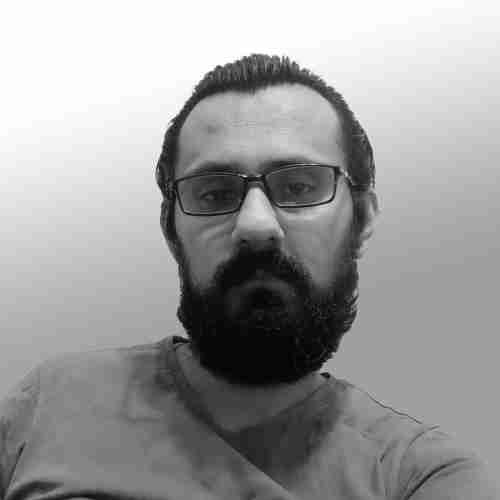
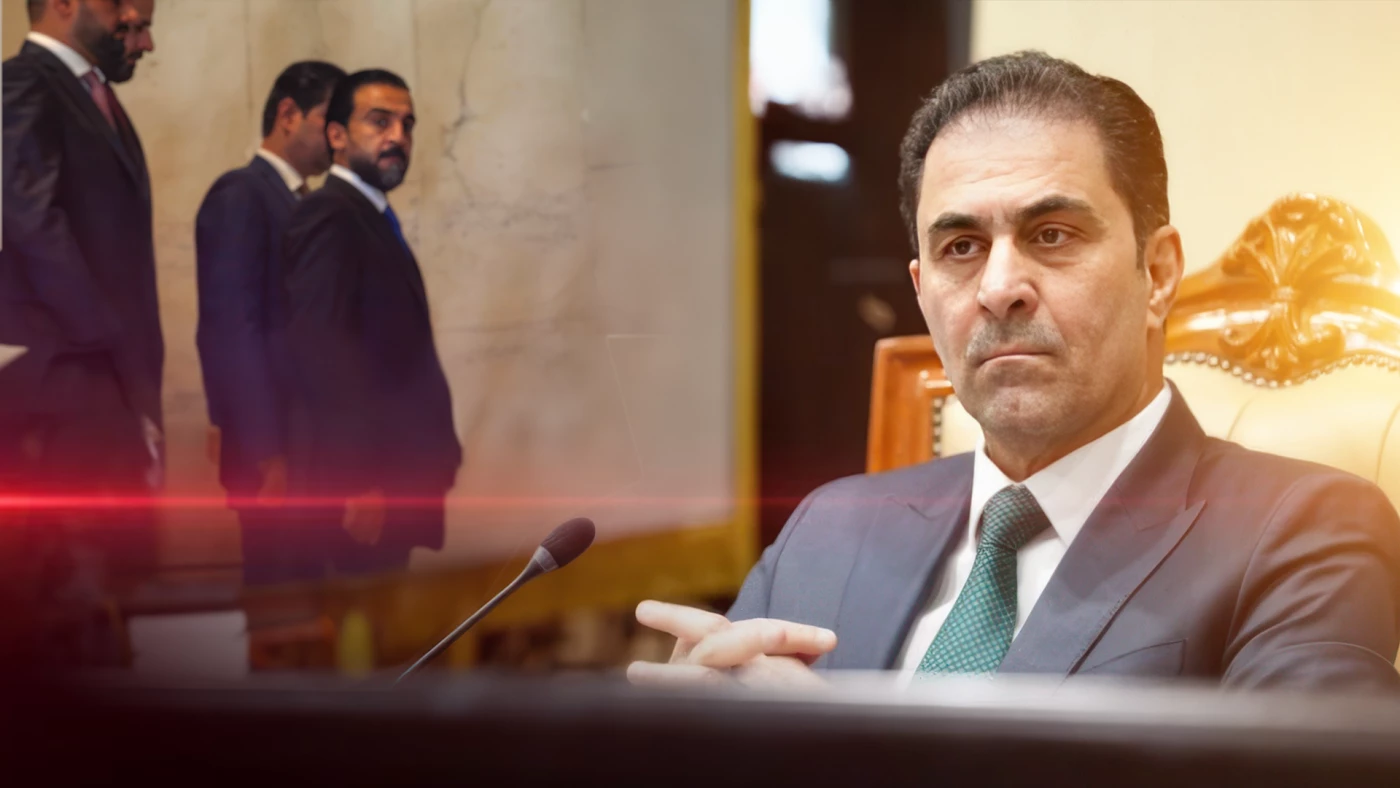
 Facebook
Facebook
 LinkedIn
LinkedIn
 Telegram
Telegram
 X
X
